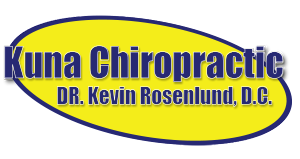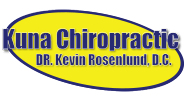Colic
Colic is a condition in young infants characterized by an unusual amount of crying.When they cry, they may draw their arms and legs toward their bodies as though they are in pain and may even turn bright red. Colic usually appears between the 3rd and 6th week after birth and is typically resolved by the time they are 3 months old. Although no one is certain what causes colic, there are a number of things that likely contribute, such as an immature and irritated nervous system, food sensitivites and gastrointestinal upset.
The theory that an irritated spine may contribute to colic is supported by the frequent improvement in symptoms with gentle chiropractic adjustments. Because the birthing process is very stressful on the neck of a newborn, it is very common for there to be several subluxations in the neck and back that can irritate the tiny and delicate nervous system. It has also been observed that babies with colic seem to need more attention and are more sensitive to the things around them than other babies – again indicating that there are some neurological differences.
Both the mother’s and the baby’s diet can be huge factors in the development of colic. One of the biggest offenders is cow’s milk. Babies should not have cow’s milk, or dairy in any form for that matter, until they are at least two or three years old. Cow’s milk contains the sugar lactose which many newborn babies cannot digest very well, not to mention that cow’s milk contains many proteins that are not good for an infant’s digestive system.
Another potential dietary contributor to colic is the mother’s diet while breastfeeding. Women who breast feed should stay away from spicy foods, alcohol and tobacco, as well as to avoid eating too much of any one particular food. A semi-bland, high-protein diet that excludes dairy is probably best – at least during the first three or four months of breastfeeding.
If your baby suffers from colic, there are a few things that you can do to help:
- Seek regular chiropractic care, especially during the first four months.
- Place a warm water bottle on your baby’s stomach.
- Rock your baby in a rocking chair or cradle.
- Give your baby a warm bath.
- Gently rub your baby’s stomach.
- Go for a drive with your baby in the car seat.
- Feed your baby more often with less food at each feeding.
- If you feed your baby formula, avoid soy or dairy-based formulas.
KUNA CHIROPRACTIC
DR. KEVIN ROSENLUND DC, NMD
Bachelor of Science
University of Kansas
———————————–
Naturopathic Medical Degree
College of Naturopathic
Medicine & Surgery
———————————–
Doctorate in Chiropractic
Cleveland Chiropractic College
OPENING HOURS
| Mon – Thurs | 8a – 11a |
| Mon – Thurs | 1:30p – 5p |
| Friday | 8:30a – 11a |
208.922.5057
OFFICE LOCATIONS
OUR PATIENTS SAY
Don’t just take our word for it, read some of what our patients have to say about our services here at Kuna Chiropractic.

I was referred to Dr. Rosenlund because of how well he treated me after I was involved in an auto accident and sustained whiplash injuries.

I met Dr. Rosenlund several years ago after he successfully treated one of my high school baseball players for an elbow and shoulder injury. I’ve sent several of my athletes to see him over the years as I have the utmost confidence in his abilities and know that they will receive the best care possible for a wide range of sports injuries.

After getting hurt on the job, I was referred to Kuna Chiropractic for neck and back pain so I could feel better and get back to work quickly.

